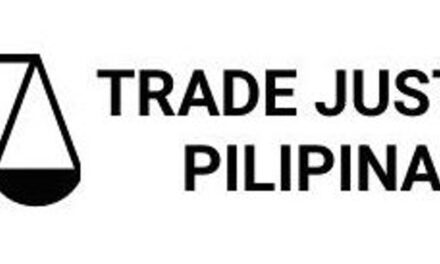By Nicola Bullard
LEADERS at the recent G-15 meeting in Kuala Lumpur made it clear that the Multilateral Agreement on Investment being negotiated by the Organisation for Economic Cooperation and Development, and which many see as the global blueprint for all future investment agreements, does not have their support.
However, given that liberalising investment is seen as the key to achieving a completely open global economy, there is no doubt that world’s great economic powers, the US and the EU, will keep pushing the MAI despite growing opposition from developing countries and from consumer, environment and development organisations worldwide.
While a mechanism to liberalise and regularise investment regimes may seem like a good idea, the MAI being drafted behind closed doors at the OECD raises important questions, not the least being who will benefit.
These questions are all the more trenchant in Southeast Asia as the financial crisis deepens. Thailand, in particular, should be wary of efforts to further liberalise investment given that many of its economic woes can be traced to uncontrolled finance and investment flows into non-productive and unsustainable sectors of the economy.
What is the MAI?
The most striking feature of the MAI is its all-encompassing definition of investment to include, in addition to foreign direct investment, stocks, bonds, intellectual property rights, concessions and ‘any other tangible or intangible, movable and immovable property, and any related property rights such as leases, mortgages, liens and pledges.’ In short, anything and everything.
It is based on the principles of non-discrimination and most favoured nation (MFN) treatment. In effect foreign investors will be treated as if they were domestic investors and will get the same, or better, deal than other investors in the same enterprise. This means that governments will not be able to use policy or laws to protect domestic investors or enterprises against bigger and richer transnational corporations and that agreements will incrementally swing in favour of foreign investors as they build their bargaining power based on the MFN principle.
The MAI also proposes radical expropriation and compensation provisions heavily biased in favour of the investor, even when governments act in the national interest.
A recent case from Canada provides a stunning example of the potential abuse of this provision.
Under the North American Free Trade Agreement (NAFTA), the US company Ethyl is suing for lost profits and reputation because the Canadian Government banned the use of a toxic gasoline additive produced exclusively by that company. Put simply, a law enacted to protect Canadians from a proven toxic chemical has been challenged by an investor on the grounds that they would no longer be able to manufacture and sell that chemical on the Canadian market.
Of course the Canadian government has the resources to challenge the case, but how many small and developing nations could afford to mount a legal defence against a foreign corporation, risking not only scare public funds in the courts but also jeopardising future investment? More importantly, what effect would it have on the willingness of governments to enact new legislation clearly in the public interest?
The draft MAI also carries a ‘protection from strife’ clause which ensures that states assume total liability for investment losses due to war, conflict, civil disturbance or ‘any other similar event’. The good old days when investment was about weighing risks against returns are over: the state assumes the risk and investors reap the profit.
Performance requirements would also be prohibited. For example, investors cannot be required to employ a certain number of local staff or use a given percentage of domestic components. This means that not only are domestic enterprises exposed to the competition of bigger firms (in the name of the market), but that linkages to the local economy are determined solely by the investor.
While no-one argues the benefits of certain kinds of foreign direct investment in developing and expanding economies, there are concerns that the MAI as presently drafted will increase the power of foreign investors – predominantly transnational corporations – to such an extent that governments will lose control over key economic policy instruments which enable them to protect and promote national interests.
Who wants the MAI?
The WTO has been trying to broker a multilateral investment agreement, but progress has been glacial and almost stalled at the WTO ministerial meeting in Singapore last year.
Parallel OECD discussions have moved much more smoothly, after all rich countries can be relied on to know where their best interests (or at least the interests of their corporations) lay.
The OECD’s MAI is a stand-alone treaty, meaning that once finalised any one can sign on. Critics of the MAI believe that non-OECD and developing countries will be pressured to sign the agreement or risk losing investment to countries who have signed. In fact OECD teams have already visited Africa, Asia and Latin America selling the virtues of the MAI. The problem is that they will be signing on to agreement which was negotiated without them and which is heavily skewed in favour of the investor.
The wording of the draft MAI indicates the success of the corporate lobby pushing for an international regime to create a ‘predictable and transparent’ investment environment.
But this language is misleading. Predicability and transparency really mean that investors don’t want to ‘waste time’ coming to grips with local conditions. It’s much easier to invest knowing that the rules are the same everywhere and that those rules allow corporations to move their investments wherever and whenever they want while seeking maximum profits.
Regulation not liberalisation
Close examination of the economic crisis in Thailand shows that unencumbered flows of finance capital into short term, highly profitable but essentially non-productive sectors of the economy was a significant factor in the financial free-fall. The fly-by-night investors have gone and the State is left with a foreign debt of US $89 billion, of which 80% is owed by the private sector.
It is questionable whether an MAI such as the one being secretly negotiated in Paris would have prevented this. In fact, it could be argued that what is desperately needed is a mechanism to regulate investment.
In theory, governments know the importance of protecting domestic capital and small and medium sized enterprises against big investors. It helps develop a strong national economy which in turn provides a tax base to fund other economic, social, cultural and environmental objectives. The great Western economies, and more recently Japan and South Korea, have built their prosperity on protecting domestic capital and local markets.
In practice, though, many governments are too self interested or corrupt or weak to resist the pressures to open their markets and finance sector to the global economy. There is simply no need to have an international agreement which further undermines national, and in theory at least, democratic control over economic and development policy.
Quite the opposite, in fact.
Governments need to look at ways of attracting long term investment and slowing down finance investment flows.
There are serious questions about the benefits and costs of unbridled liberalisation, and countries such as Thailand which have staggered off the not-so-level playing field battered and bruised have good reason to ask questions about the rules of the game and just who they favour.
The agreement is due to be concluded in May next year, having been extended for twelve months due to lack of progress. Given that member countries have already registered more than 600 pages of reservations, and the mounting international campaign to scuttle the agreement, the 1998 deadline is looking very tight.









